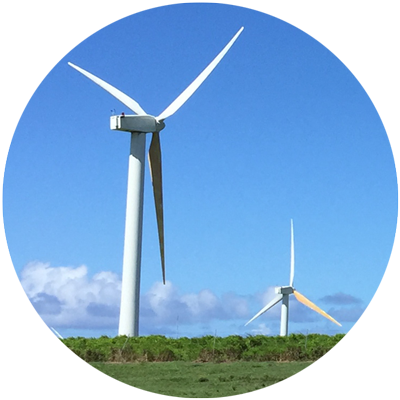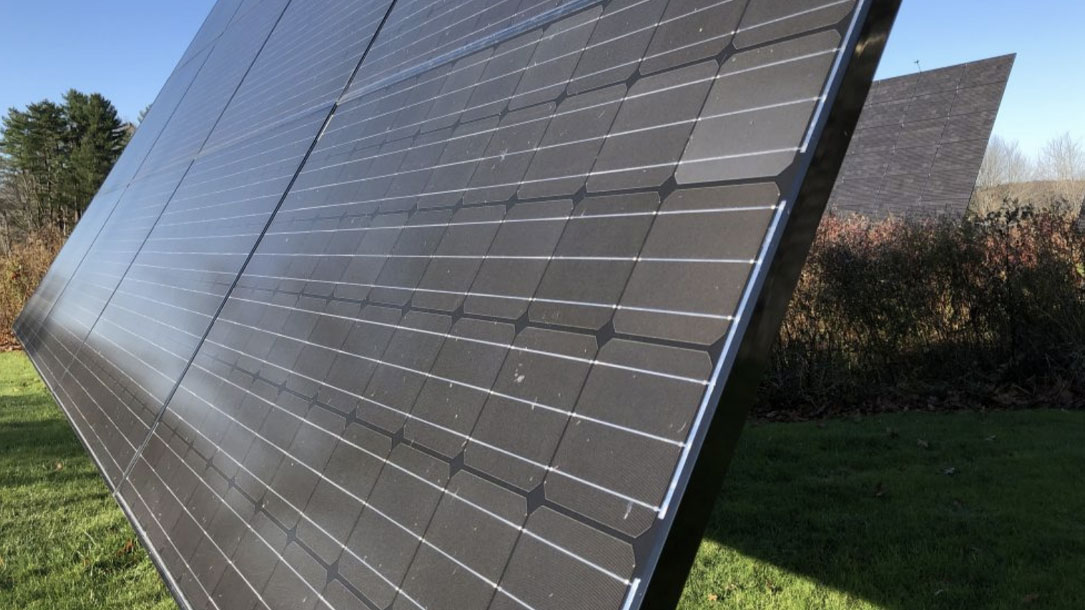
Climate change and community impact
Climate communication 101 involves meeting people where they are, connecting with that they see, and finding ways for people to participate in the climate solution in a manner that also adds value to their lives.
Maine Audubon has done just that with its Climate Spotlight series. Audubon’s research has documented that if left unchecked climate change will cause the loss of millions of birds. They’re playing a leadership role and helping to frame the issue:
“Climate change is the biggest environmental issue facing Maine, and we’re not backing down. Maine Audubon’s new Climate Spotlight series is aimed at giving consumers and advocates the information they need to take action and understand how climate change impacts Maine. Topics in this free online discussion series include: getting involved in rooftop and community solar; natural climate solutions; transportation; and home energy efficiency.”
Check it out, and see if this is something you could create in your community.

Is a big win for conservation a blow to climate action?
On July 22, Congress passed the biggest public-lands spending bill in half a century. The bipartisan bill, called the Great American Outdoors Act, puts nearly $10 billion toward repairing public-lands infrastructure, such as outdated buildings and dysfunctional water systems in national parks…
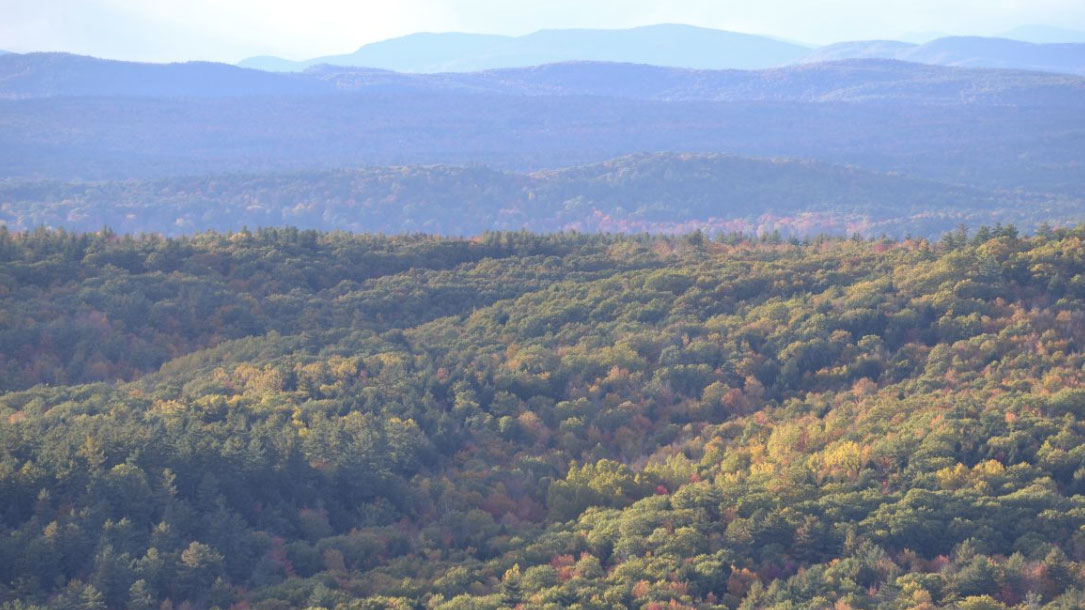
Sustainability and climate change initiatives
In their most recent climate initiative, the Kennebec Land Trust Finance Committee worked with Kennebec Savings Bank Investment and Trust Services to move their investments into a Socially Responsible Investment (SRI) portfolio that is aligned with their mission. SRI considers environmental, social, and corporate governance criteria to generate long-term competitive financial returns and positive societal impact.
As managers of forestland, they use and promote forest management practices that maximize carbon sequestration, including: protecting soil carbon, where about 50% of the carbon inventory is typically stored on a forested acre; promoting native species and increasing plant diversity to improve forest resiliency and carbon storage; harvesting sustainably; and taking a long-term view by growing high-value and larger diameter trees. On the ground, their forestry days at the Curtis Homestead are teaching the next generations…
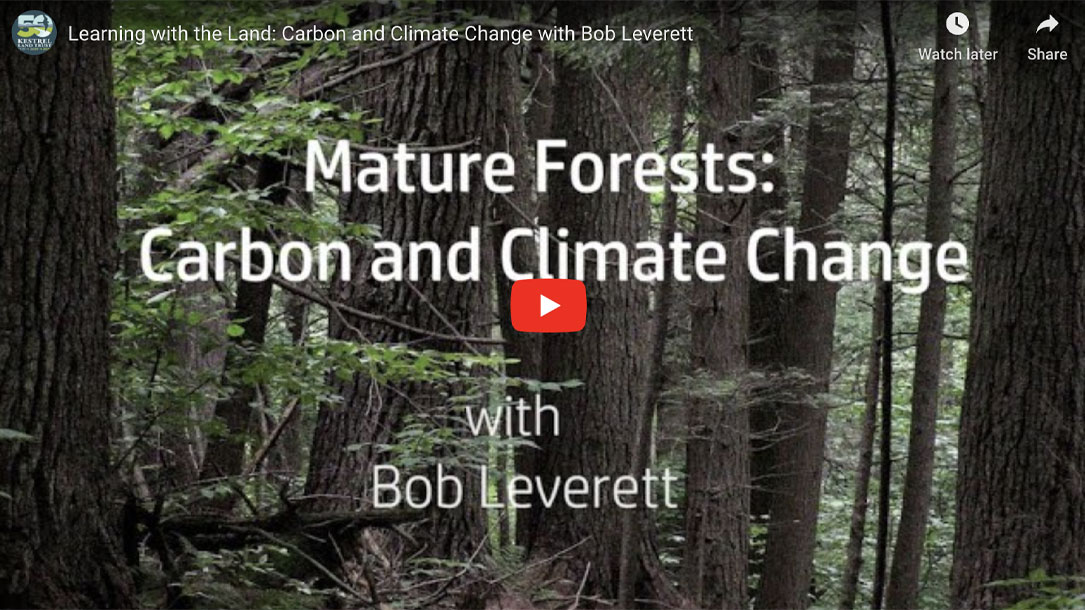
Mature forests, carbon & climate: Learning with the land
Come visit with old-growth forest expert Bob Leverett at his own forest in Florence to learn about the role our local forests play in the carbon cycle and in mitigating climate change. Bob shares his scientific method for calculating the volume of a tree and its carbon content, as well as a fascinating look at several species of mature trees on his property, including the beautiful Tuliptree…
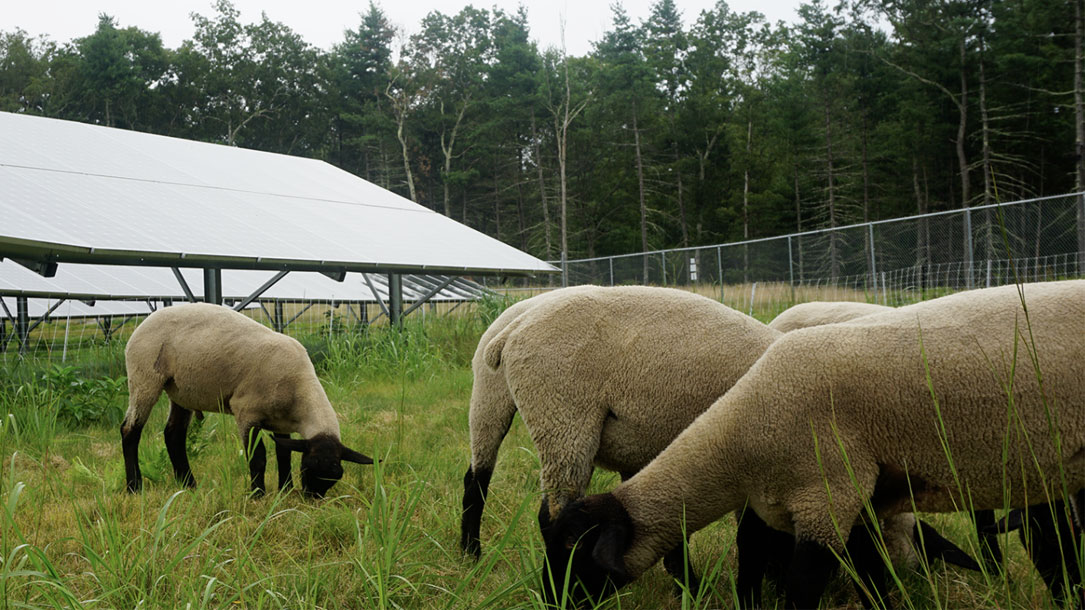
What makes for compatible solar?
American Farmland Trust’s New England Climate and Agriculture Program Manager and soil scientist Emily Cole, and Blue Wave’s Development/Senior Director Drew Pierson, team up to talk about what is needed to make solar projects compatible with—and benefit from—farmland viability.
If you are interested in how to slow down climate change and help agriculture, this webinar could be helpful. This is the second in a three-part series. While the webinar is focused on New England, the concepts of design, strategy, and partnerships are applicable to other parts of the country.
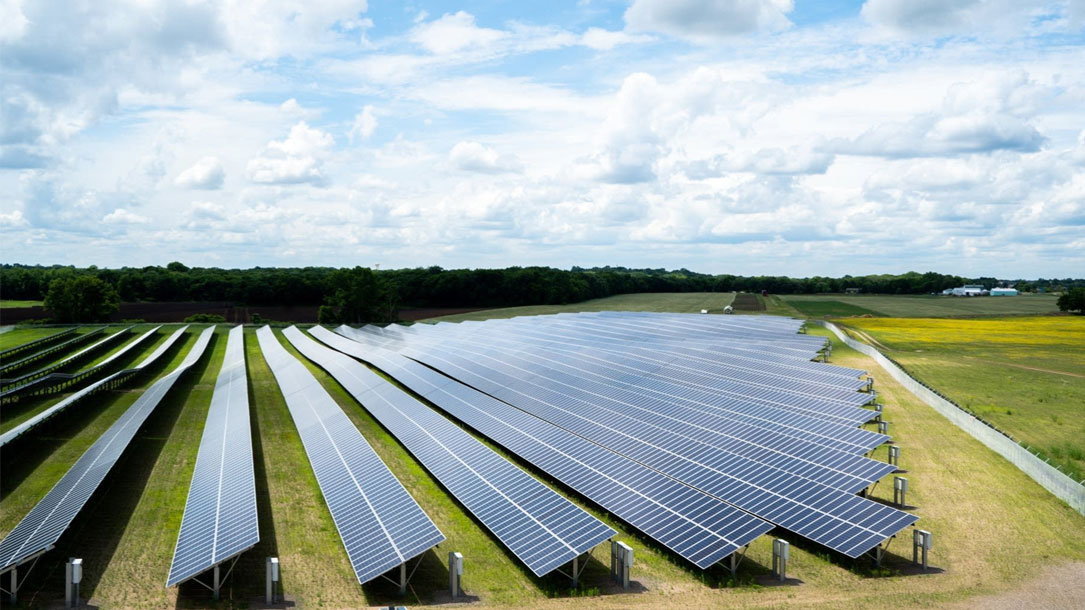
Pollinator-friendly solar energy becomes the norm in Minnesota
The environmental benefits of Connexus Energy’s solar-plus-storage project are obvious enough, but this time of year, you’ll notice something more: prairie grasses and flowers planted under and around the sea of solar panels.
Pollinator-friendly plantings at large solar energy sites have become common in Minnesota in recent years. Not only do they provide habitat for the bee and butterfly populations people have been concerned about, but they also promote soil health and probably even boost the solar panels’ electricity output on warm days…
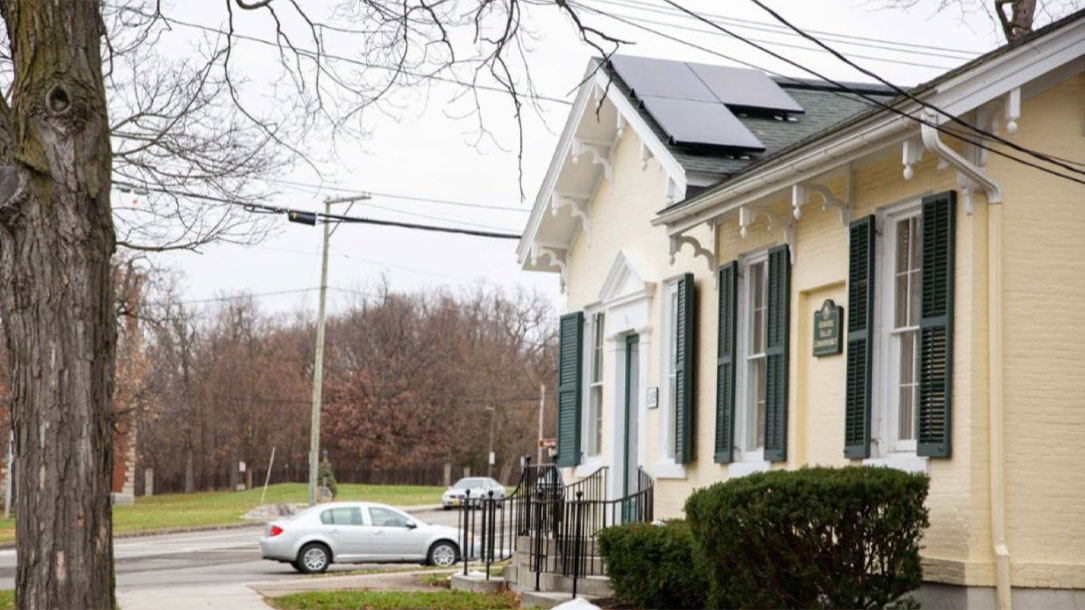
Office upgrades: Going solar
Historic 1 Main Street, built in 1835, has received its most recent modernization this fall with the addition of solar panels to provide clean electricity.
Building owners Meg and Billy Lloyd partnered with Genesee Valley Conservancy to install the photovoltaic system that will offset 100% of the land trust’s electric use. They acknowledge that “while the land trust works to protect habitat, open space, and farmland in the Genesee Valley, a large supply of power is needed to run the operations of this work: computers, printers, lights, modems, etc.”
The up-front costs were shared by the building owners and the Conservancy, as both will benefit from the project. The Conservancy will see an immediate reduction in monthly utility bills and after six years will break even on the initial investment and begin seeing a net-savings.
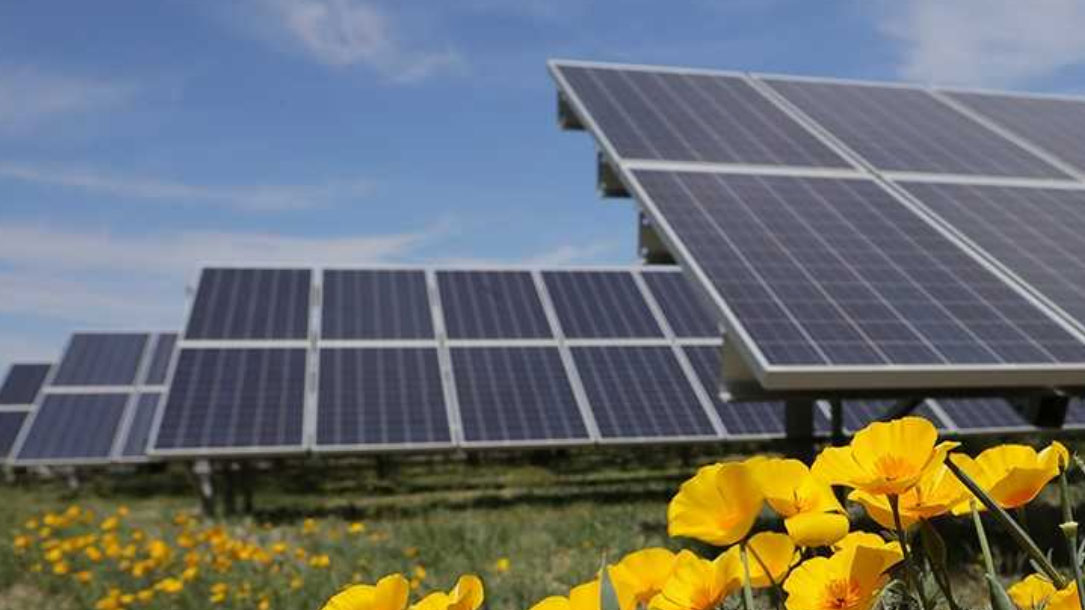
Tucson Electric Power Series
Tucson Electric Power (TEP) provides safe, reliable and increasingly sustainable electric service to approximately 425,000 customers in Southern Arizona. The company is on track to surpass its own ambitious renewable energy goals by expanding use of wind and solar power. TEP is a local leader in community service, volunteerism and economic development efforts, with energy efficiency programs that help customers to better manage their energy costs. It is with great pride that we spotlight TEP programs and services.
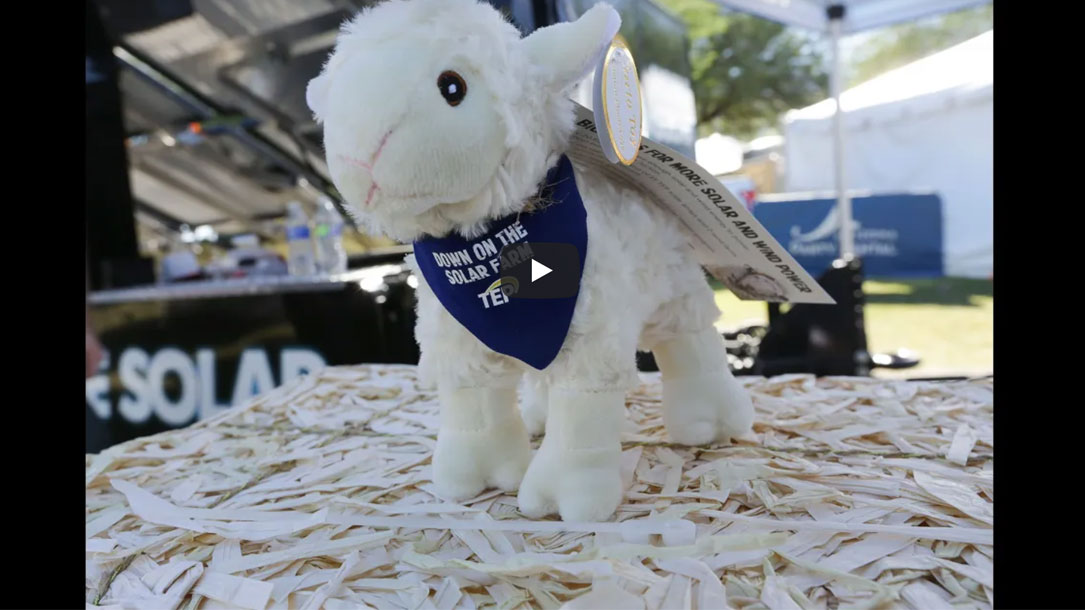
Mrs. Green is happy…
A flock of sheep chews away the weeds that grow underneath one of Tucson Electric Power’s (TEP) solar arrays instead of lawnmowers, spray, or weed trimmers, demonstrating one way TEP supports eco-friendly practices.
“To make sure our large solar array gets plenty of sun, we can’t let the weeds grow too high. That’s where the sheep come in,” said Ericca Suarez, a Technical Specialist in Renewable Energy. “It really is more sustainable to use the sheep.” Rancher Rusty Cocke manages the herd to keep the panels productive while preventing damage to the 1,200-acre site.
Learn more about the programs, sustainable practices and powerful partnerships fostered by Tucson Electric Power in the Tucson Electric Power Podcast Series.
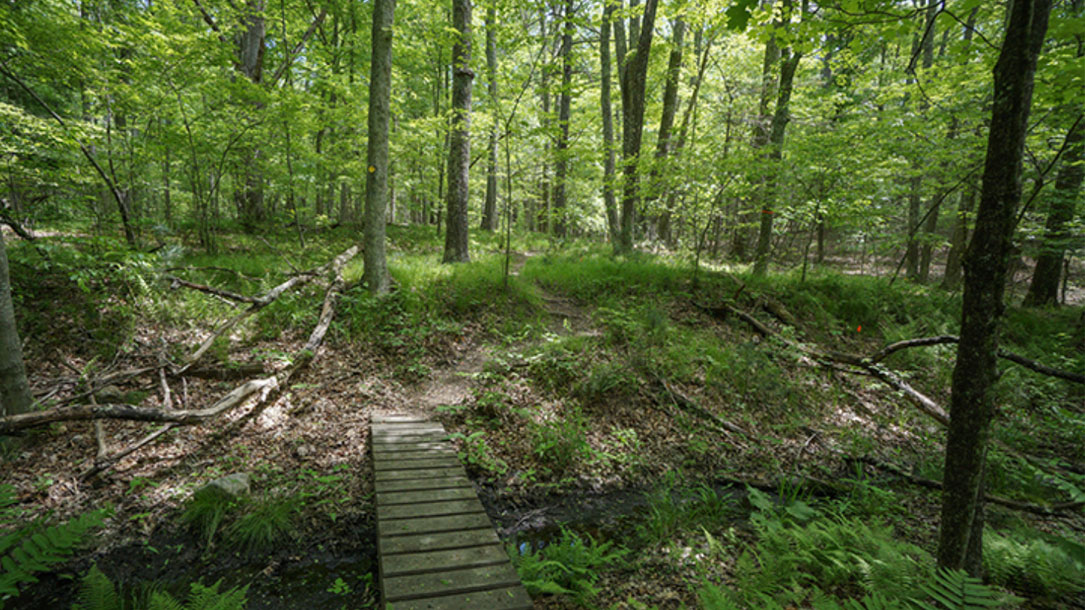
The role of land conservation in fighting climate change
At Mass Audubon, [their] land conservation strategy is directly linked to climate change mitigation and adaptation. As the largest private land owner in Massachusetts with more than 38,000 acres protected, [they] know how critical land conservation and effective land management is in the age of climate change.
[Their] recent entry in the California Air Resources Board (CARB) carbon offset market ensures that 10,000 acres of forested land will be protected for the next 100 years, ensuring the carbon stored in this critical landscape remains there…



